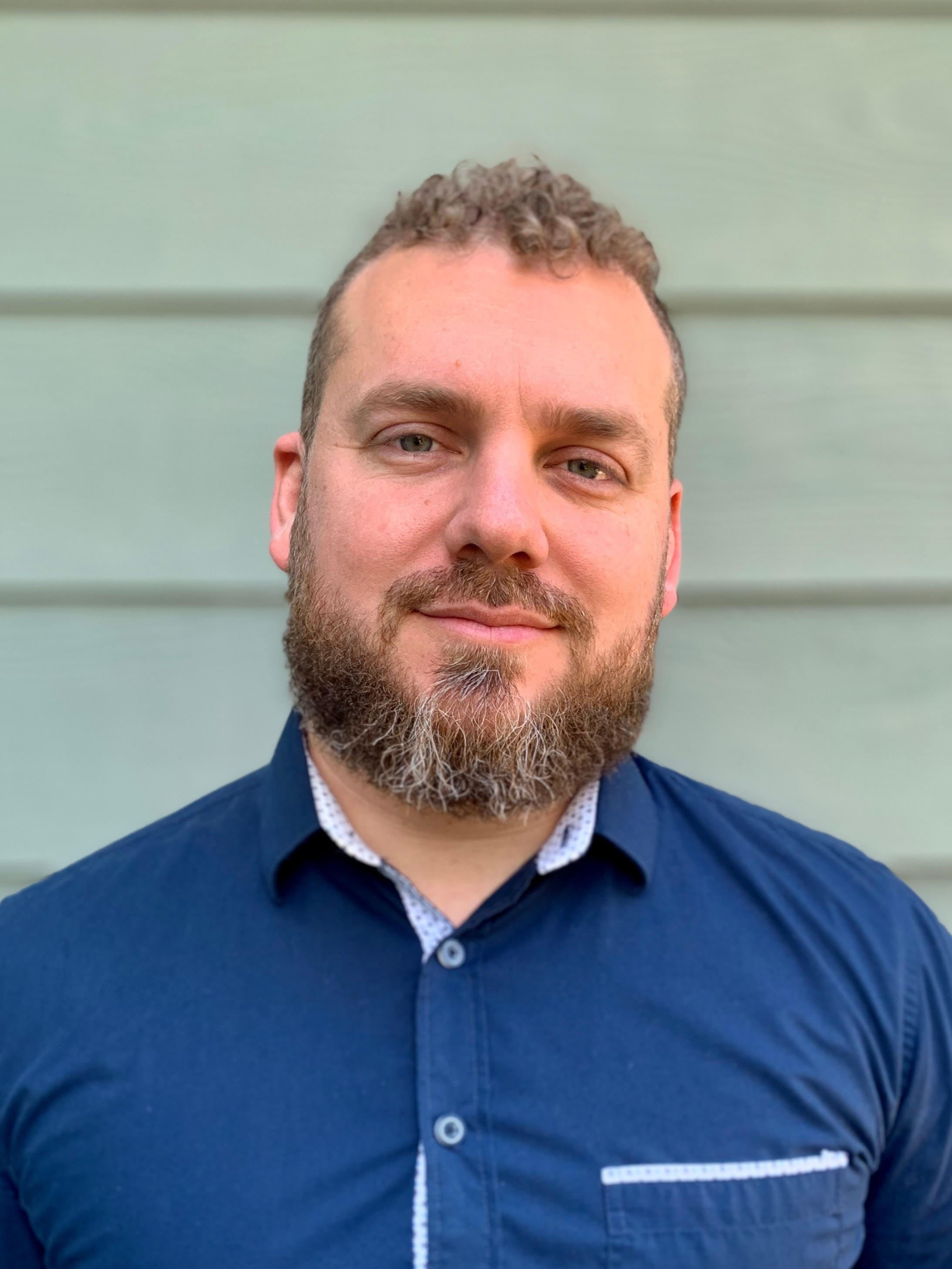
-We’d love for you to introduce yourself and share a bit about your background & story. How did you come to work with psychedelic-assisted therapy and IPI?
Hello all you beautiful caring professionals and healers! Allow me to share a bit about my background so you can understand how I came to be a psychedelic assisted therapy provider. Besides being the head of IPI Oregon practicums and retreats, I am a mental health counselor with a private practice in Ashland, Oregon, and I try to balance that with being a parent to four children alongside my wonderful wife.
I am also a Veteran who was diagnosed with PTSD after the Army, and that is where much of my story starts with how I got to be involved with psychedelic-assisted therapy.
In the Army, I was a Human Intelligence Collector, where I served a combat tour in Afghanistan, and later I was attached to a special forces team in Central Africa. Because of the difficult and complex missions fighting terrorism, I found my mental health unraveling. I became miserable to be around — I was reacting to everything around me with anger and anxiety. My wife and kids began to walk on eggshells around me.
Eventually I decided I had to get out of the Army to try to heal my nervous system and my broken spirit for the sake of my family. I was diagnosed with PTSD and prescribed a grocery bag full of medications to help me cope. This helped me manage the constant anxiety and depression, but it was not healing me or helping me deal with the underlying trauma. I was also doing a lot of talk therapy to try to heal, but any progress seemed painfully slow.
I was helped tremendously when I found psilocybin and used it therapeutically. That psilocybin journey was incredibly healing for me (and would take too long to try to describe here). But it allowed me to deal with many underlying wounds in my psyche that I couldn’t access through regular therapy or prescription pharmaceuticals.
My wife told me soon after that it was the first time since before the Army that she recognized the man she had married. I realized that I had to be part of bringing this medicine to other Veterans and people with PTSD or debilitating depression in a safe and caring therapeutic context. I dove into the world of plant medicine, having many more experiences along my healing and learning journey. But I knew I needed to get a lot of training and mentorship in psychedelic therapy and began devouring anything that has been written on the topic, and seeking out training programs. Eventually I found IPI and took part in their second cohort, which remains one of the biggest influences to me in this work.
-Could you provide some information about Conscious Encounters/the Oregon Psilocybin Practicum? How long have we been open for, how many people have we served, etc.?
The licensed psilocybin Service Center in Eugene, Oregon that we use for our IPI psychedelic assisted therapy practicum retreat is Conscious Encounters. Conscious Encounters became licensed soon after the legalization program in Oregon opened up in the summer of 2023, and the first services were offered in July of 2023. A fun fact is that I was actually the first person to purchase mushrooms at Conscious Encounters which means I was one of the first to legally purchase mushrooms in the United States. As of June 2024, Conscious Encounters has hosted 21 practicums, which is about 450 students who have had a group psilocybin experience there.
The other wonderful IPI staff at Conscious Encounters and I have continued to refine the curriculum and the flow of the practicum experience and we feel very excited to have seemingly unlocked something very powerful with the group experience we cultivate there. A majority of students have been reporting that this practicum experience is one of the most profound weeks of their life.
-What are you most excited about/hopeful for regarding the future of psychedelic-assisted therapy?
I am most excited about two different facets of psychedelic-assisted therapy. The first is how much promise has been shown through research in increasing neuroplasticity, and treating various mental health conditions, including depression, anxiety, PTSD, and addiction.
The second is continuing to explore the capacity of non-ordinary states of consciousness to facilitate life growth and spiritual wellness, which ultimately connects us more to each other and to the natural world we must care for. Psychedelics provide a unique window into the human mind and consciousness. I believe we are rediscovering a significant piece of ourselves that has been lost in most of the western world for many generations. One of the most significant things is the ability to connect with deeper parts of ourselves as well as each other through these non-ordinary states of consciousness.
-What are some of the most impactful lessons you’ve learned spearheading this therapeutic movement?
Speaking from the lens of a mental health counselor trained in psychedelic facilitation, I believe that the best way for people to consume psilocybin to maximize its therapeutic potential is to consume it in a calm, serene environment, with reverent intention and safety provided by well-trained and experienced facilitators. It is also helpful and preferable for people to stay for a multi-day experience, to have time to prepare for this journey of consciousness, spend time in self-care, and then maximize the potential of meaningful integration after the journey.
Additionally, I believe we have found many unique benefits to doing psilocybin in a group context which amplifies the therapeutic value. Much of this value comes from building community with others in a deeply meaningful and vulnerable way, where the heart can be opened and love can be felt in a way that can be so healing and is hard to experience anywhere else.
-What are some of the challenges you foresee in this space, and how might we mitigate or overcome these?
Psychedelic-assisted therapy holds great promise, but several challenges and cautions need to be addressed to realize its full potential. Beyond the obvious challenges such as regulatory and legal hurdles, here are some of key challenges I am seeing in this space and some possible ways forward to mitigate or overcome those challenges:
- Psychedelic therapy is quite different from traditional treatments, so integrating it into the existing medical system is going to continue to be challenging and needs a creative and flexible approach. It will be essential that psychedelic facilitation teams include psychiatrists, psychologists, and other healthcare professionals to help understand the mental health needs that many clients are seeking relief from. Collaborating with mainstream medical institutions for research and clinical trials can also ease this integration. There is also some risk of adverse reactions, especially in people with certain mental health conditions. We need to continue to develop screening practices and standardized protocols to ensure safety. Many times, a challenging experience can be psychologically disruptive but it can be therapeutically beneficial if the integration of the experience is done skillfully. Training therapists to handle both the therapeutic integration and the substances involved is crucial.
- These treatments can be expensive and hard to find, which could limit access for many people. We can advocate for insurance coverage and develop models that make the treatments more affordable. Community-based clinics, group therapy, and sliding scale fees could also help.
- It’s important to understand the long-term effects of these therapies and ensure proper follow-up care. Conducting long-term studies and extending follow-up periods in clinical trials can provide valuable data. We also need guidelines for aftercare and integration sessions to sustain the benefits.
- Ethical and Moral Considerations: We need to make sure these treatments are used ethically and that clients’ rights and well-being are always the priority. Clear ethical guidelines can help maintain high standards. Thorough informed consent processes are essential so clients know what they’re getting into.
By addressing these challenges head-on, we can help psychedelic-assisted therapy reach its full potential and make a real difference in mental health treatment.
-What would you like to say to folks who might be considering getting trained in psychedelic-assisted therapy?
This field is exciting and holds so much promise for therapeutic breakthroughs as well as healing many of the communal wounds we face in our western culture. However, the decision to get into this work requires an ongoing dedication to the art and science of facilitation, as well as learning aspects of the human psyche and states of consciousness that one must always retain a beginner’s mind in. Opening the doors of perception leads to aspects of consciousness and the human condition which are incredibly profound and deep. I have been finding that the more I experience and learn in this work, the more I realize the humility we must have using these substances as tools to help people navigate the depths of the human experience. But for those who are willing to really go there and facilitate clients in these non-ordinary states, I think these psychedelic tools can be life changing.







